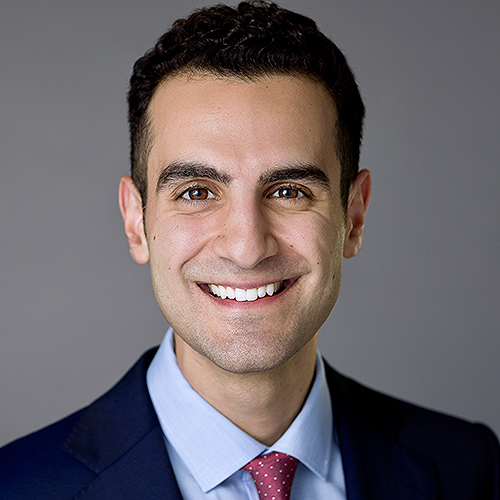Recommendations
To support innovation, the United States and its allies should take steps in three areas: international policy collaboration, private-sector collaboration, and international funding sector coordination.
To collaborate on international policy, the United States and its allies should:
- Prioritize a set of high-impact technologies and adopt fast-moving strategies that prioritize critical gaps and opportunities in the minerals value chain. The Japanese model offers a clear blueprint. Sustained public-private investment has driven Japanese global leadership in high-efficiency hydrometallurgy, high-purity magnet materials, and mining e-waste with a targeted focus on rare-earth elements. Building on this foundation, the United States and its allies should jointly fund commercial-scale processing and recycling projects, accelerate next-generation separation and magnetic recovery technologies, and deepen geological collaboration—including research on deep-sea mineral resources through bilateral mechanisms.
- Designate national laboratories in the United States and allied countries as core pillars of the innovation ecosystem, particularly in mineral separation science, metallurgy, advanced materials, recycling, and recovery. The United States and its allies should establish formal mechanisms to better integrate National Labs with private firms, start-ups, and allied research institutions. These mechanisms would enable shared access to facilities, coordinated research agendas, and faster translation of laboratory breakthroughs into commercial applications.
- Deploy coordinated measures to protect critical mineral and REE markets in the United States and allied countries from nonmarket policies and unfair trade practices to support the economic viability of technologies and related projects. Measures could include ensuring that countries that meet certain standards, including price standards, are eligible for market access in the United States and allied countries. This policy would be consistent with the G7 Action Plan and bilateral agreements that the Trump administration has agreed to with Australia, Japan, and Malaysia.
To improve private-sector collaboration, the United States and its allies should:
- Make the private sector, particularly major mining and materials companies, central partners in technology scaling. Large firms play a critical role by providing real-world test environments, infrastructure, and operational expertise that significantly reduce technical and commercial risk. Allied governments should encourage structured partnership models between incumbents and emerging technology developers.
- Leverage allied government and industry resources to address the acute shortage of pilot- and demonstration-scale facilities. China has invested heavily in shared-use pilot infrastructure that allows multiple firms to test technologies at scale before committing to full commercial development. Establishing similar shared pilot facilities, be it publicly funded, privately operated, or structured as hybrid partnerships, could dramatically lower costs and speed deployment, particularly for capital-intensive processes where furnace construction and specialized equipment represent the largest barriers to scale.
To coordinate international funding mechanisms, the United States and its allies should:
- Create a G7 Innovation Fund or G7 Production Alliance Fund dedicated to co-financing critical minerals innovation across member states. This mechanism could function as a “plurilateral In-Q-Tel,” pooling capital and expertise from multiple federal agencies alongside equivalent agencies from allied countries, sovereign wealth funds, private equity and venture capital firms, and corporate venture funds. Cost-sharing and risk-pooling would reduce downside risk, align national security and commercial objectives, and impose market discipline at each stage of development. It would also empower sovereign investment vehicles, export credit agencies, and development finance institutions to blend domestic capital with allied funding in priority supply chains. These tools are uniquely suited to lower investment risk for private investors, mobilize large pools of capital, and accelerate scale while reinforcing shared strategic objectives across allied ecosystems.
- Streamline innovation funding and application processes with shared platforms to ensure that start-ups and small companies can access grants, loans, and investment programs in one another’s economies. Simplifying requirements, harmonizing procedures across allied funding sources, and reducing administrative burdens can help unlock the next generation of mineral technologies. At the same time, allies should establish bilateral and plurilateral investment coordination platforms—particularly among the United States, Australia, Canada, Japan, the G7, and other partners—and allow early-stage funding to operate beyond strictly domestic constraints. Agencies such as the Department of Energy, Department of Defense, and DFC should have the flexibility to coinvest internationally to strengthen shared supply chain resilience.
- Establish an open solicitation platform for critical mineral technologies that provides predictable pathways from early-stage ideation to commercialization. This process could begin with small grants (for example, $150,000) for proof-of-concept work, scale to multimillion-dollar awards for piloting and demonstration projects, and grow to access other public-private support, such as offtake arrangements tied to performance milestones.
- Align and enact government policy to support allied mineral recovery and recycling, where upfront capital requirements often deter private investment despite strong economic trajectories. Targeted co-investment, risk-reducing guarantees, and well-designed tax incentives can help mining and materials companies justify investments in recovery circuits, recycling infrastructure, and circular processing systems that would otherwise remain stranded.
The United States will not secure its critical mineral future through traditional mining and processing alone. While expanding extraction and refining capacity is necessary, it is insufficient to overcome China’s structural advantages in technology, cost, and scale. The area in which the United States can most credibly compete, and potentially overcome its disadvantage, is innovation. The most promising way to leapfrog China’s entrenched position is for the U.S. government to maximize breakthrough materials engineering, advanced extraction and processing technologies, waste recovery, and recycling. Those innovations are already emerging across the private sector, National Labs, universities, and early-stage companies, driven in part by heightened policy attention to national and economic security. Yet innovation in this sector is uniquely fragile. Even technically successful companies can fail not because their technologies do not work, but because they slide into one of several persistent valleys of death that interrupt progress between the stages of discovery, pilot, and commercial scale.
Closing those valleys of death requires a stronger domestic funding ecosystem, reformed policies, and deeper allied coordination. Private capital alone cannot reliably bridge the multiple gaps facing frontier mineral technologies, particularly when timelines are long, the risks are greater, and returns depend on system-wide adoption rather than firm-level success. Government support is therefore not a substitute for markets but a necessary catalyst to spur private investment, reduce risk, and shorten scaling timelines.
At the same time, the United States should not innovate in isolation. While the United States brings comparative strengths in R&D, entrepreneurship, and capital formation, many U.S. allies have greater expertise in mining, processing, and industrial scaling. The United States needs a coordinated policy and financing architecture that treats innovation not as an afterthought but as the primary means by which it and its allies can leapfrog China in critical minerals—and secure the material foundations of economic and strategic strength.
Appendix I: President Trump’s Executive Orders on Critical Minerals
| EO 14154, “Unleashing American Energy” | Directs the secretary of the interior to prioritize geologic mapping and to instruct USGS to consider updating its critical mineral list |
| EO 14156, “Declaring a National Energy Emergency” | Directs department heads and executives to identify and exercise any lawful emergency authorities to facilitate the identification, leasing, siting, production, transportation, refining, and generation of domestic energy resources |
| EO 14213, “Establishing the National Energy Dominance Council” | Establishes the NEDC as an advisory mechanism for the president, focusing on improving the process for permitting, production, generation, distribution, regulation, transportation, and export of critical minerals and energy as a whole |
| EO 14241, “Immediate Measures to Increase American Mineral Production” | Aims to facilitate production for minerals classified as “critical,” in addition to uranium, copper, potash, gold, and others determined by the chair of the NEDC |
| EO 14261, “Reinvigorating America’s Beautiful Clean Coal Industry” | Directs the secretaries of energy and the interior to determine if coal should qualify as a “critical mineral” under the Energy Act of 2020, and to take steps to place coal on the Critical Minerals List if it does |
| EO 14285, “Unleashing America’s Offshore Critical Minerals Resources” | Sets forth a new policy to advance seabed mineral development |
Appendix II: The Mineral Technology Valleys of Death
Technology Valley of Death: Between early scientific discovery and a reliable, engineered process capable of producing materials at quality and scale. Many breakthrough concepts emerge from universities or National Labs, yet few transition into robust pilot systems. Government grants typically fund this stage.
Pilot-Scale and Validation Valley of Death: Once a technology is proven for potential commercialization, scientists and entrepreneurs face a second gap: financing and operating a pilot or demonstration. This stage is where most mineral innovations fail. Pilot facilities are capital intensive, technically risky, and too small to generate revenue. Yet without a pilot plant, technologies cannot produce the data required for customer qualification, engineering validation, or eventual bankability. Following the pilot, customer qualification and engineering validation are costly and time consuming, but necessary to prove the technology works.
Commercialization Valley of Death: Once a technology works and is validated, the company needs to attract enough seed or Series A capital to build the first commercial facility. This is the most acute bottleneck in the mineral supply chain. Investors often demand evidence that cannot be generated without a commercial facility, creating a catch-22.
Profitability Valley of Death: Even after a first commercial plant is built, a final gap remains: achieving cost-competitive, sustained profitability, especially in the face of cyclical minerals markets that are dominated by incumbents with massive scale and often influenced by China’s subsidized pricing. New producers face years of price volatility, qualification requirements with customers, ramp-up inefficiencies, and competition from artificially low-cost Chinese production. Many firms reach commercial output only to struggle with margins that cannot support continuing operations or expansion or attract follow-on investment.
We are grateful for the thoughtful comments of Council on Foreign Relations (CFR) President Mike Froman, Senior Vice President and Director of Studies Shannon O’Neil, and Associate Vice President of Studies Stuart Reid. For their insights over six sessions from June 2025 to December 2025, we are indebted to the members of the CFR/Silverado Study Group on Strategic Leapfrogging Through the Critical Minerals Crisis. We benefited immensely from insightful presentations and enthusiastic interventions by study group members, which included a cross section of bipartisan policymakers, scientists and national labs, investors, early-to-growth stage companies, and industry leaders focused on actionable strategies the United States should pursue to quickly advance new generations of technology that could change the critical minerals chessboard entirely. It was a privilege to convene with such an engaged, mission-driven cohort.
For full disclosure, this report includes a number of references to companies whose representatives were in the study group—including the three case studies. Those companies are Alta Resources Technologies, Element3, Glencore, In-Q-Tel, Lilac Solutions, MP Materials, Niron Magnetics, Orion Industrial Ventures, Phoenix Tailings, ReElement Technologies, Rio Tinto, TechMet, and Vulcan Elements. These references were intended to provide illustrative examples supporting our analysis and recommendations. But the companies and their representatives had no editorial control over the report in general or the passages mentioning them in specific. Nor did they provide financial support; CFR does not accept funding from corporations for individual research projects.
Our special thanks to CFR research associates A.J. Dilts, Turner Ruggi, and Michael Weilandt for their exceptional research support and seamless administrative coordination, and to Patricia Dorff and Caitlin Moran for their guidance and editorial contributions.
Our special thanks to Silverado Policy Accelerator CEO Sarah Stewart; Senior Policy Analyst David Kelm; and Vice President of Research and Analysis Andrew David.
Heidi Crebo-Rediker is a senior fellow for geoeconomics at the Council on Foreign Relations, specializing in economic security, economic competitiveness, and international finance. She directs CFR’s Roundtable Series on Global Political Economy. Previously, Crebo-Rediker served in the Obama administration as the State Department’s first chief economist. She provided strategic advice to two secretaries of state on the integration of economics and finance with geopolitics to help craft and launch “economic statecraft” in the Obama administration. Before this, she served as the chief of international finance and economics for the Senate Committee on Foreign Relations. Over her previous, nearly two-decade investment banking career based in Europe as a managing director at several investment banks, she managed businesses including sovereign and public-sector banking, European debt capital markets, emerging markets debt capital markets, and corporate finance. Her areas of industry focus were energy and mining, financial services, and telecommunications. She began her career in energy merchant banking and investing in Russia/CIS. Crebo-Rediker holds a BA from Dartmouth College and MSc from the London School of Economics.
Mahnaz Khan is vice president of policy for critical supply chains at Silverado Policy Accelerator, where she leads the organization’s critical minerals portfolio. Her work focuses on developing innovative trade policy strategies and analyzing the geopolitical and economic security dimensions of critical mineral supply chains. Prior to joining Silverado in 2024, Khan spent fourteen years as a career civil servant in U.S. trade policy, serving at the Office of the U.S. Trade Representative, the U.S. International Trade Commission, and the Department of Commerce. She also serves as a nonresident senior fellow at the Atlantic Council’s GeoTech Center. She holds a BS in business administration from Boston University and a JD from Chicago-Kent College of Law.t








